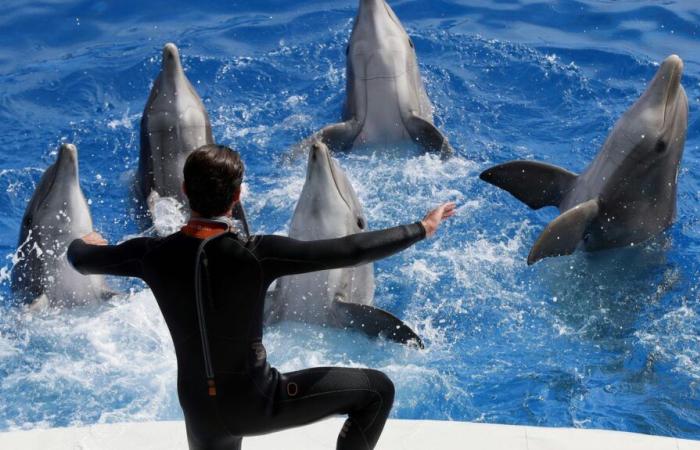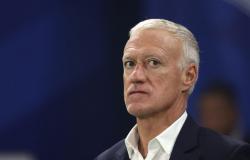
“I’m sad because we never asked for closure”but rather than the activity “gradually ceases by stopping reproduction”recalls Christine Grandjean, the founding president of the association It’s enough!. She was a guest, Monday January 6, of “ici Azur” (formerly France Bleu Azur), the day after the permanent closure of the Marineland animal park in Antibes (Alpes-Maritimes).
It was the last park in Europe to show orcas. Marineland still welcomed more than 400,000 visitors per year, recalls “ici Azur”. The animal park permanently closed its doors on Sunday January 5, citing serious financial difficulties, while attendance has declined significantly in recent years. A law also prohibits cetacean shows from 2026. But the future of the park, its employees and the marine animals is still not resolved, which worries the association for the protection of dolphins and orcas.
“It’s a victory in terms of the evolution of mentality, because it means that people frequented less and understood that there was a lot of suffering behind this captivity, behind this industry”welcomes Christine Grandjean, who nevertheless raises the question of the future of the site and its occupants: “When an industrial site or an economic site closes its activity, it is required to restore the site, so what will happen to the staff and animals?”
150 animals are still present on the Marineland site, including twelve dolphins and two orcas. In all, 4,000 species are still found there, if we also count fish and their corals. For now, they all remain in their ponds while waiting to find a new home site.
The Council of State now limits transfers of animals such as dolphins or orcas, for commercial purposes. The fate of Marineland's cetaceans will therefore be “very complicated, because in Spain where there may be space, there is only spectacle and reproduction”describes Christine Grandjean. The transfer permit will need to be “demonstrates that the park is as big as Marineland, that there is no commercial purpose behind it, that there will be no reproduction, that animal welfare rules will be respected” et “It will still be very complicated, we have no guarantee that once in Spain, the dolphins will not leave for China”worries the president of the association. It's enough! Like the dolphins in Asterix which “went to Sweden and a few months later, another was transferred back to Germany. Once the dolphin is no longer in France, we no longer have any guarantee for its well-being or its protection”she warns.
Concerning the healers still on site, “unfortunately they risk losing their jobs”recognizes Christine Grandjean, but they will have “a conventional break perhaps, and still money behind and unemployment. The cetaceans, they have made the wealth of the park and they have nothing behind them.”
She hopes that “the carers, dolphins and orcas will be able to stay on site until we have a solution at sea”. According to her, “It could last for years with temporary sanctuary arrangements, with educational presentations, fundraising from the Marineland foundation, there I think that the carers would not be impacted, at least for these animals”.
On the future of dolphins, Christine Grandjean states that a “solution for four dolphins” was found: a sanctuary in Taranto in Italy is ready to welcome them “in exceptional conditions at sea, with trainers, veterinarians, everything is ready and the dolphins could arrive next July”assures Christine Grandjean.





